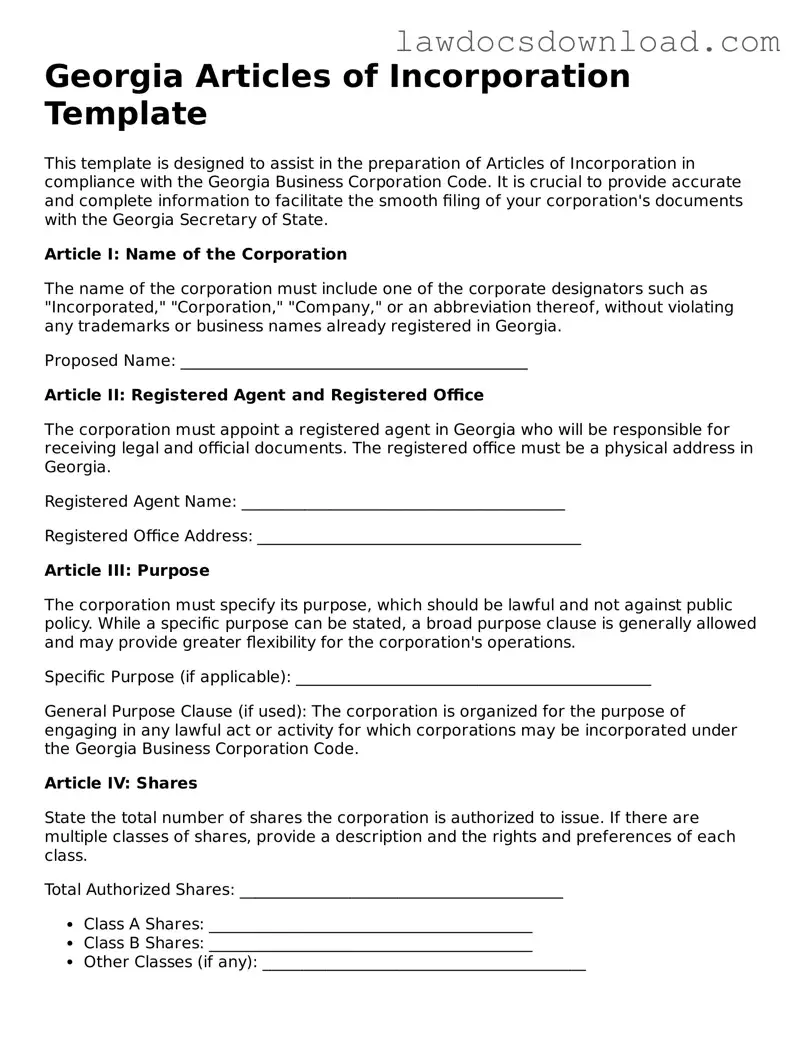Georgia Articles of Incorporation Template
This template is designed to assist in the preparation of Articles of Incorporation in compliance with the Georgia Business Corporation Code. It is crucial to provide accurate and complete information to facilitate the smooth filing of your corporation's documents with the Georgia Secretary of State.
Article I: Name of the Corporation
The name of the corporation must include one of the corporate designators such as "Incorporated," "Corporation," "Company," or an abbreviation thereof, without violating any trademarks or business names already registered in Georgia.
Proposed Name: ____________________________________________
Article II: Registered Agent and Registered Office
The corporation must appoint a registered agent in Georgia who will be responsible for receiving legal and official documents. The registered office must be a physical address in Georgia.
Registered Agent Name: _________________________________________
Registered Office Address: _________________________________________
Article III: Purpose
The corporation must specify its purpose, which should be lawful and not against public policy. While a specific purpose can be stated, a broad purpose clause is generally allowed and may provide greater flexibility for the corporation's operations.
Specific Purpose (if applicable): _____________________________________________
General Purpose Clause (if used): The corporation is organized for the purpose of engaging in any lawful act or activity for which corporations may be incorporated under the Georgia Business Corporation Code.
Article IV: Shares
State the total number of shares the corporation is authorized to issue. If there are multiple classes of shares, provide a description and the rights and preferences of each class.
Total Authorized Shares: _________________________________________
- Class A Shares: _________________________________________
- Class B Shares: _________________________________________
- Other Classes (if any): _________________________________________
Article V: Incorporators
List the name and address of the incorporator(s) responsible for executing the Articles of Incorporation. The incorporator must ensure that the articles comply with the requirements of the Georgia Business Corporation Code.
- Name: _________________________________________
- Address: _________________________________________
Article VI: Duration
The corporation may specify a duration for its existence or choose to exist perpetually.
Duration: _________________________________________
Article VII: Additional Provisions
Include any additional provisions here, such as indemnification of officers and directors, pre-emptive rights to shareholders, restrictions on share transfers, etc., that are not inconsistent with state law.
Additional Provisions: _____________________________________
Please verify that all provided information is accurate and complete before filing with the Georgia Secretary of State. Inaccurate or incomplete filings may lead to delays or the rejection of the Articles of Incorporation.

